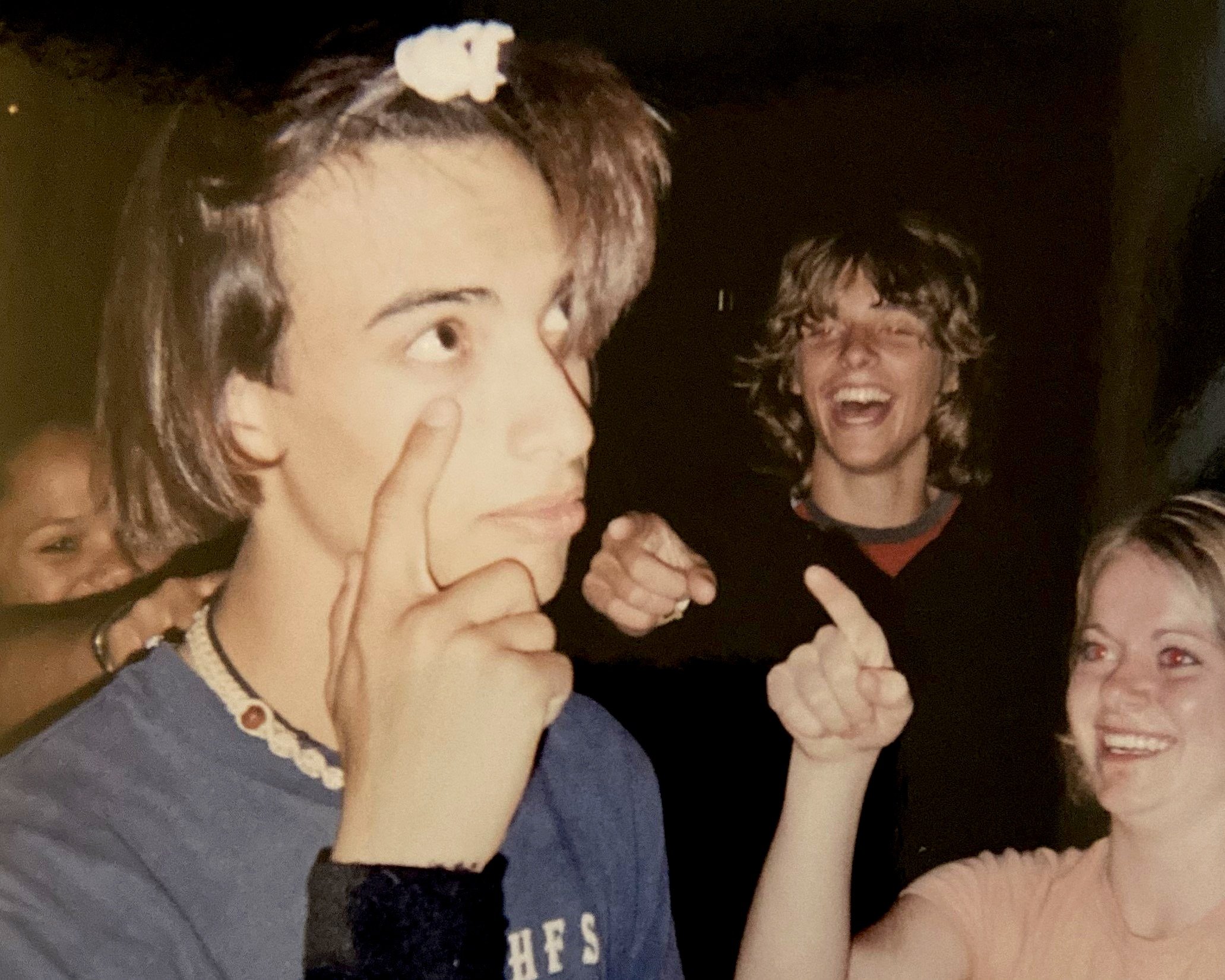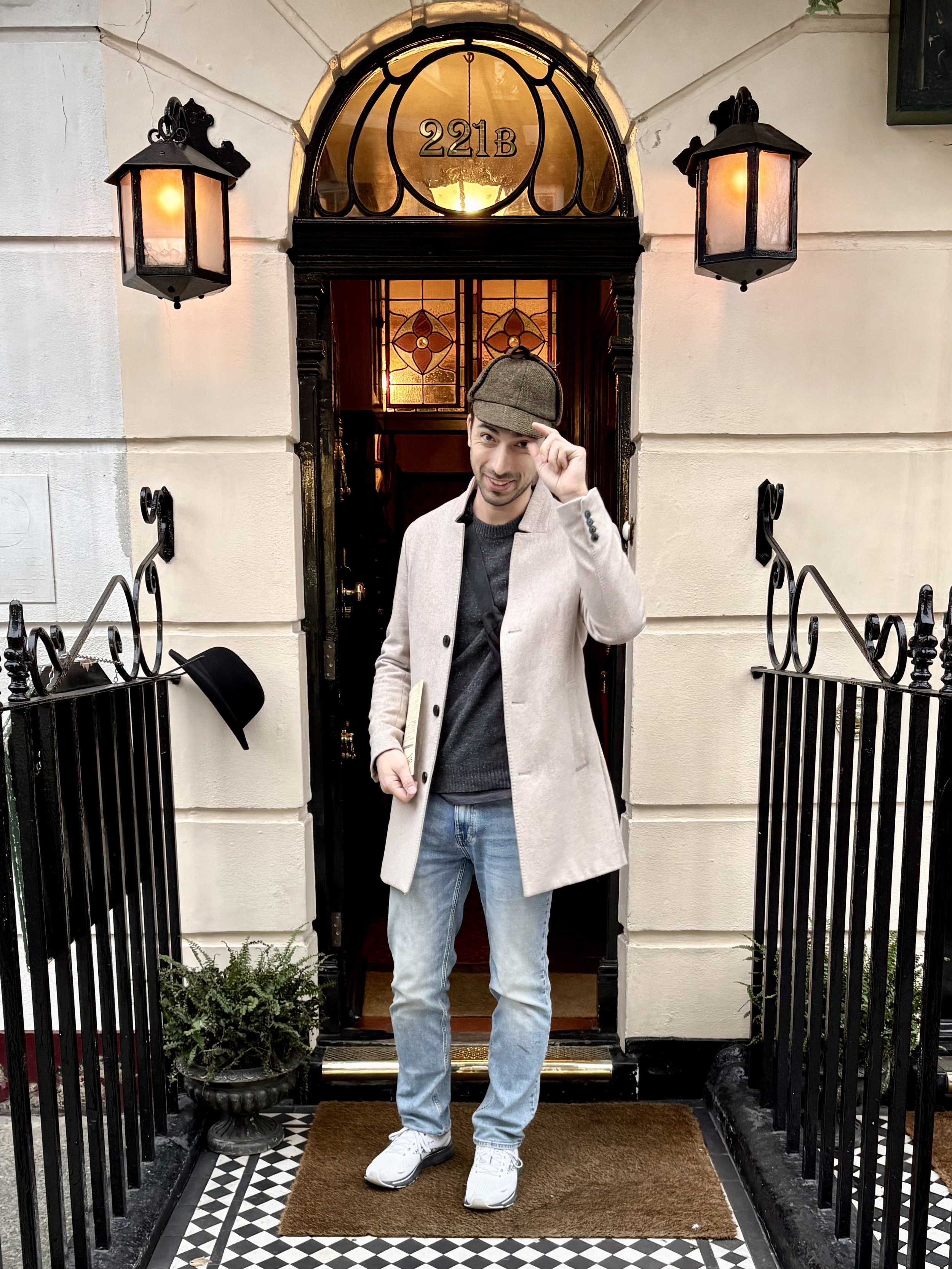How to Say the Hard Things: Lessons from a Crude Wake-Up Call
Sometimes wisdom comes from unexpected places. For me, it arrived through five crude words at a Christian music festival in 2004: "Pull your head out of your ass."
I hadn't wanted to be there. We'd moved to a new town that summer before my senior year, and my mom, hoping I'd make friends, had dragged me to church. After service, someone invited me to youth group. After youth group came Creation Fest - a Christian music festival that seemed about as far from my usual punk shows as you could get.
I was deep in my skater punk phase, with long emo bangs I'd sometimes style in ridiculous front-facing pigtails just to provoke a reaction. When I made some self-deprecating joke, a pastor responded with those five words. I was furious. Who the hell was this guy? What right did he have?
But anger has a way of making you think.
The Weight of Identity
Back in my old town, my friends and I had embraced being "rejects." It wasn't just a label - it was armor. When other kids tried to run us over with their pickup trucks in the school parking lot or pick fistfights with us at football games, we responded by being as visible as possible. We started mosh pits in the hallways, made out with our same-sex friends in the commons, and did everything we could to provoke a reaction.
In this new place, though, that armor was just weighing me down. I'd internalized some of the hateful things people had said about me. Being a biracial punk choir boy and an A student didn't fit into anyone's boxes. Having multiple identities felt like a problem to solve rather than a strength to embrace.
Music had always been my way of defining myself - through the shows I attended, the bands on my t-shirts, the communities I found. It would take years to realize I didn't need to be just one thing, that different parts of myself could coexist without contradiction.
The Complexity of Connection
This lesson came rushing back recently at an Orville Peck concert. I'd scored last-minute tickets to see the masked country singer, known for performing in masculine drag, and invited a family member along. (Though this person is cis, I’ll use the pronoun “they” for purposes of privacy.) They were fascinated by the costumes and energy, even asked thoughtful questions about pronouns - a moment that nearly brought me to tears.
Days later, at a church picnic, everything shifted. As they introduced me to friends, they kept redirecting conversations away from any mention of the concert. When it came up, they would dismiss it with uncomfortable comments about the "very interesting people" there. Each time, I felt a piece of myself being hidden away, as if these different parts of life couldn't coexist.
On my last morning in town, I knew we needed to talk. Choosing my words carefully, I asked what they'd meant by "interesting people." I watched my tone, pulled back whenever I sensed defensiveness rising, and focused on expressing how it felt to have part of my world - and by extension, part of me - treated as something shameful. There were uncomfortable moments, but by avoiding accusation and staying rooted in love, we managed to have a real conversation about acceptance and understanding.
Beyond the Echo Chamber
Just last weekend at Jacksonville's Porchfest, I witnessed how music still builds bridges. As Joan Jett took the stage, I looked around at the crowd - young punk kids experiencing their first mosh pit, beach girls in flip flops, older rockers reliving their youth. When Jett introduced The Replacements' "Androgynous," saying it had been on her heart lately, knowing looks passed through the crowd. We understood what this song meant in this moment.
But that recognition - powerful as it is - isn't enough. We need both: the solidarity of shared understanding and the courage to engage beyond it. We need the safety of our own communities and the bravery to build bridges beyond them.
We need to learn to separate ideas from people, to understand the implications of our actions rather than continuing to dehumanize those who think differently. This isn't about compromising our values or accepting harmful ideologies. It's about recognizing that behind every viewpoint is a person with experiences that shaped them.
Sometimes those conversations will be uncomfortable. Sometimes we'll need to step back and wait for emotions to cool. But we have to start somewhere. In times like these, the hardest thing - and the most necessary - is to pull our heads out of our echo chambers - our collective asses - and face each other as human beings again.
It won't be comfortable. Growth rarely is. But the future depends on what we do next.



